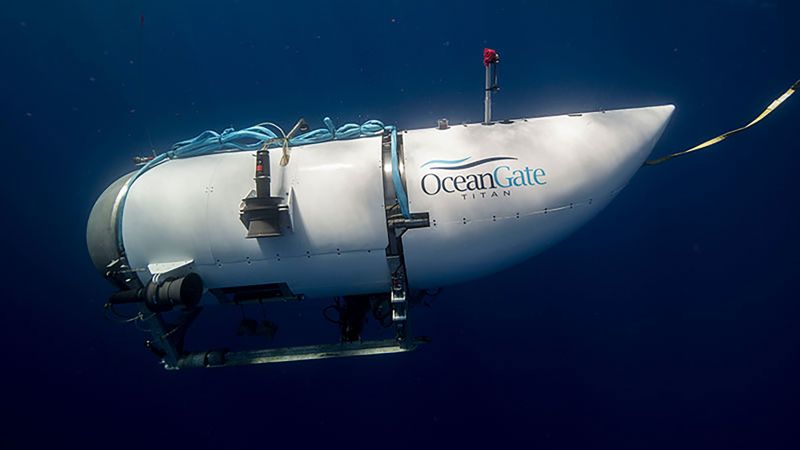
UPDATE: A shocking new report from the National Transportation Safety Board (NTSB) has confirmed that faulty engineering was the primary cause of the catastrophic implosion of the Titan submersible, which claimed the lives of five individuals during its ill-fated journey to the Titanic wreck in June 2023. The findings, released just hours ago, reveal serious oversights in safety procedures that led to this tragic incident.
The report states that the Titan suffered a catastrophic hull failure and implosion on the morning of June 18, 2023, in the North Atlantic. All five passengers, including prominent figures like OceanGate CEO Stockton Rush, French underwater explorer Paul-Henri Nargeolet, and British adventurer Hamish Harding, died instantly as the submersible descended towards the wreck.
According to the NTSB, the engineering flaws resulted in a carbon fiber composite pressure vessel that had “multiple anomalies” and did not meet crucial strength and durability requirements. The report emphasizes that OceanGate, the owner of the Titan, failed to conduct adequate testing on the vessel and lacked awareness of its true structural integrity.
In a critical revelation, the report stated that the Titan might have been located sooner if standard emergency response protocols had been followed by OceanGate. While a rescue was ultimately deemed impossible, adhering to these procedures could have saved valuable time and resources.
This urgent update aligns with earlier findings from the U.S. Coast Guard, which released a report in August 2023 indicating that the Titan incident was preventable. The Coast Guard highlighted “critically flawed” safety protocols at OceanGate, citing “glaring disparities” between established safety measures and actual practices.
Following the implosion, OceanGate suspended its operations in July 2023. As of now, company representatives have not commented on the latest NTSB findings. However, a spokesperson previously expressed condolences to the families of those who perished.
The victims of this tragic event included two members of a prominent Pakistani family, Shahzada Dawood and his son Suleman Dawood. The loss of life has sparked widespread outrage and calls for stricter regulations governing private deep-sea expeditions.
The NTSB report urges the Coast Guard to commission an expert panel to study submersibles and other human-occupied pressure vehicles, recommending that new regulations be informed by these findings. The report emphasizes the necessity of disseminating these findings across the industry, particularly as privately financed exploration activities continue to expand.
The Titan had been making voyages to the Titanic site since 2021, with its final dive occurring early on June 18. After losing contact with its support vessel two hours into the dive, a multi-day search effort commenced approximately 435 miles (700 kilometers) south of St. John’s, Newfoundland. The rescue operation captured international attention but soon shifted to recovery, as it became clear that there were no survivors.
As investigations continue, this report serves as a stark reminder of the dire consequences of inadequate safety measures in extreme environments. The implications of these findings will likely resonate across the private exploration sector, emphasizing the urgent need for enhanced regulations and oversight to prevent further tragedies.
Stay tuned for more updates on this developing story as authorities address the aftermath of this devastating incident.





